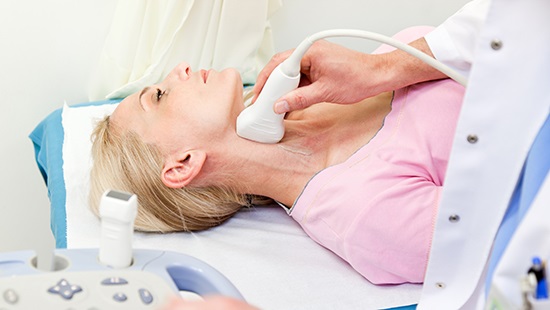Are You at Risk for Vascular Disease?

Get a free, personalized report that helps you understand your risk and gives you next steps to lower that risk.

Also called carotid artery stenosis, carotid artery disease is the result of plaque buildup in the carotid arteries (located in your neck), which can reduce blood flow to the brain and cause a stroke.
The specialists at the Vascular Center at UM Baltimore Washington Medical Center (UM BWMC) specialize in the diagnosis and treatment of carotid artery disease.
You are at a higher risk for carotid artery disease if you:
Know Your Risk: Carotid artery disease is among the conditions that a vascular screening can detect. If you have risk factors, consider getting a vascular screening. If you're not sure of your risk, take our vascular health risk assessment to learn more.
Symptoms can include:
Call 911 immediately if you have these symptoms. Symptoms may not develop until blockage or narrowing of the arteries becomes severe.
Not every case of carotid artery disease requires surgical treatment. Sometimes, healthy lifestyle changes or medications may be prescribed.
In cases where surgery is needed, we perform procedures such as carotid endarterectomy (CEA), which is done to remove plaque buildup in the carotid arteries and improve blood flow.
The care team at the Vascular Center at UM BWMC will help you determine which treatment options are best for you.
For more information or to make an appointment with the Vascular Center at UM BWMC, call 410-553-8300.

Get a free, personalized report that helps you understand your risk and gives you next steps to lower that risk.